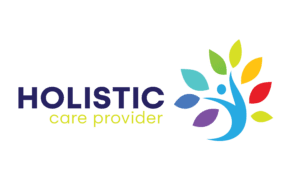Professional Development Opportunities for Disability Support Workers
In the realm of disability support, the role of support workers is pivotal in ensuring individuals with disabilities lead fulfilling lives. To enhance the quality of care and support provided, ongoing professional development is essential. This article delves into the significance of professional development for disability support workers and explores various opportunities available for their advancement.
Understanding the Role: Disability support workers play a crucial role in assisting individuals with disabilities to achieve their goals, participate in community life, and foster independence. Their responsibilities encompass a wide range of tasks, including personal care, assistance with daily activities, community engagement, and emotional support. To perform these duties effectively, support workers require a diverse skill set, empathy, and a deep understanding of the unique needs of each individual they support.
Importance of Professional Development: Continuous professional development is vital for disability support workers to maintain and enhance their skills, knowledge, and competencies. The field of disability support is dynamic, with evolving best practices, technological advancements, and changing regulatory requirements. Therefore, ongoing learning ensures that support workers remain abreast of the latest developments, adopt evidence-based approaches, and deliver high-quality services to their clients.
Enhancing Skills and Knowledge: Professional development opportunities enable disability support workers to expand their skills and knowledge across various domains. This may include training in communication techniques, understanding specific disabilities, behavioural management strategies, assistive technologies, and person-centred approaches to care. By acquiring new skills, support workers can better meet the diverse needs of their clients and adapt to different situations effectively.
Promoting Empathy and Sensitivity: In addition to technical skills, professional development fosters empathy, cultural sensitivity, and an understanding of diversity among disability support workers. Training programs often include modules on communication skills, active listening, and cultural competency, equipping support workers with the tools to interact respectfully with individuals from diverse backgrounds. Cultivating empathy and sensitivity is integral to building trusting relationships with clients and providing person-centred care.
Adapting to Regulatory Changes: The disability support sector is subject to regulatory changes and evolving standards of practice. Professional development ensures that support workers remain compliant with regulations, understand their ethical responsibilities, and adhere to industry standards. Training programs often cover topics such as duty of care, confidentiality, safeguarding, and the rights of individuals with disabilities. By staying informed and upholding professional standards, support workers contribute to a culture of safety, respect, and integrity within the workplace.
Career Advancement Opportunities: Professional development opens doors to career advancement and progression within the disability support sector. Support workers may pursue further education, specialised certifications, or leadership training to expand their career opportunities. Additionally, ongoing learning enhances job satisfaction, job performance, and professional fulfilment, fostering a sense of purpose and accomplishment in the work they do.
Types of Professional Development Opportunities
There are various avenues through which disability support workers can engage in professional development:
- Workshops and Seminars: Local organisations, disability service providers, and professional associations often organise workshops and seminars on topics relevant to disability support. These events provide opportunities for networking, sharing best practices, and learning from experts in the field.
- Online Training Modules: Many online platforms offer courses specifically designed for disability support workers. These courses cover a wide range of topics, from disability awareness to specialised care techniques, and can be completed at the learner’s own pace.
- Formal Qualifications: Pursuing formal qualifications, such as certificates or diplomas in disability support or related fields, enhances the professional credibility of support workers and equips them with comprehensive knowledge and skills.
- Peer Learning and Mentoring: Peer learning and mentoring programs facilitate knowledge exchange and skill development among support workers. By sharing experiences, challenges, and strategies, peers can support each other’s professional growth and development.
- Conferences and Professional Events: Attending conferences and professional events allows disability support workers to stay updated on industry trends, research findings, and innovative practices. These events also provide opportunities for professional networking and collaboration.
- On-the-Job Training: On-the-job training, including shadowing experienced colleagues, participating in case conferences, and receiving feedback from supervisors, is an invaluable form of professional development. Practical experience complements theoretical knowledge and enhances the effectiveness of support workers in their roles.
Professional development is essential for disability support workers to deliver high-quality care, remain compliant with regulations, and advance their careers. By embracing opportunities for learning and growth, support workers can enrich their skills, deepen their empathy, and contribute to the well-being and empowerment of individuals with disabilities. Investing in professional development not only benefits support workers individually but also strengthens the disability support sector as a whole, fostering a culture of continuous improvement and excellence.


Leave a Reply
Want to join the discussion?Feel free to contribute!